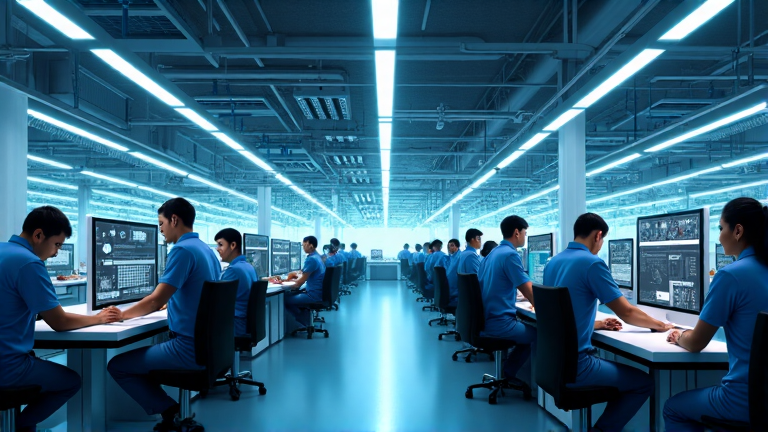
Rethinking AI Workflow Trackers: A Catalyst for Productivity, Not Oppression
In a recent controversy, an AI system designed to monitor workflows sparked outrage online. Developed by Optifye.Ai under the mentorship of Y Combinator, the tool uses AI-enabled cameras and computer vision to flag inefficiencies on the assembly line. In a now-controversial promotional video, co-founders Vivaan Baid and Kushal Mohta portrayed a scenario where a worker’s productivity was scrutinized, leading to accusations of modern-day slavery.
Understanding the Historical Context
The uproar may seem justified at first glance, but a closer look reveals a familiar narrative. For generations, supervisors and foremen have meticulously tracked worker performance in factories and shops. This digital evolution simply enhances a long-established practice by making supervision more efficient. Much like how assembly lines have historically faced scrutiny for speeding up work, concerns about AI-powered oversight echo age-old anxieties rather than genuine ethical transgressions.
The Real Challenge: Workforce Displacement
While debates rage over surveillance tools, experts warn that the more pressing issue lies in job displacement. Technology giants, such as Meta, are already shifting gears by utilizing AI to generate software code — potentially reducing the need for human programmers. Although oversight remains necessary to sift through and validate the output, the role of human coders is expected to diminish unless new, higher-level roles emerge.
Imagine a scenario reminiscent of the transition from horse-drawn carriages to automobiles. Many traditional roles were rendered obsolete, yet this transformation opened entirely new avenues, ultimately boosting economic prosperity and quality of life. The AI revolution holds a similar promise, if society can harness it effectively.
A Future Built on Productivity and Critical Thinking
Throughout history, technological advancements have fueled improvements in living standards. The industrial era, with its leaps in productivity, reshaped society, proving that innovation can lead to prosperity. In today’s AI-driven landscape, productivity enhancements invite us to reimagine our roles rather than resist them. The path to human progress lies in augmenting creativity and critical thinking, qualities that will remain indispensable in an AI-powered world.
Key Takeaway: Outrage over enhanced supervision misses the mark. Instead of resisting the digital shift, the focus should be on navigating technological changes and investing in education that fosters adaptability, creativity, and critical reasoning.
Looking Ahead
The future of work will inevitably intertwine human ingenuity with artificial intelligence. As AI opens up myriad possibilities—from accelerating scientific breakthroughs like decoding protein structures to advancing nuclear fusion research—the responsibility falls on society to ensure that education evolves. Prioritizing critical thinking will empower workers to seize new roles and opportunities that this technological revolution promises.
Note: This publication was rewritten using AI. The content was based on the original source linked above.